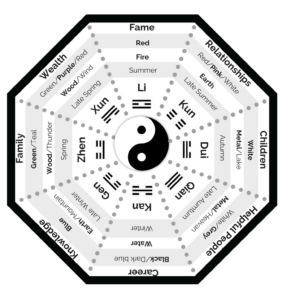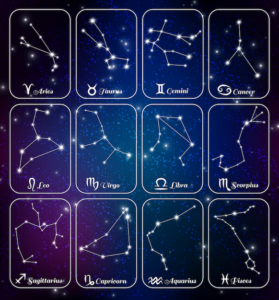
Have you ever thought about how significant astrology has been in human history and how it continues to be today? You may be an atheist, a believer, or someone who stands somewhere in between. This article is for those who think beyond these three perspectives.
In Chinese tradition, Ba Gua is similar to Vastu Shastra in India. According to its principles, structures must align with specific symbols to bring harmony. For example, in Indian Vastu, a water source is placed in the northeast, and the kitchen in the southeast. Let’s explore two examples—one from Singapore and the other from the United States.
The Singapore Story

Singapore’s first MRT (Mass Rapid Transit) service was inaugurated on November 7, 1987. During its construction, Ba Gua practitioners reportedly warned that the project did not adhere to Ba Gua principles and would bring disaster to Singapore if continued as planned. When asked how to prevent this, they suggested placing Ba Gua symbols in every household to avert the calamity. Distributing such symbols to every household wasn’t feasible for the government, but an innovative solution was devised.
On September 28, 1987, a new one dollar coin featuring an octagonal Ba Gua symbol was issued, a week before the MRT’s launch. This symbol was incorporated into the design of currency notes and vehicle permits, ensuring its widespread presence. It was believed that this would neutralize any negative effects. In a later interview, then-Senior Minister Lee Kuan Yew dismissed this as mere superstition.
The American Example
In the United States, a country celebrated for democracy and rational thought, it is said that President Ronald Reagan made several political decisions based on astrology. Official statements from the White House even confirmed that Reagan relied on astrological advice to some extent. Searching for similar examples where astrology influenced historical decisions might surprise and amaze you.
The Core Message of This Article
Cognitive ability, or the capacity for reasoning, emerged in humans roughly 70,000 years ago. Over these years, humans have continuously evolved from their prior states. Whether this evolution was positive or negative depends on the time, place, and context, and it’s not the focus of this discussion. What’s undeniable is that astrology has played a significant role in shaping humanity.
In ancient times, when tools to measure time or navigate directions didn’t exist, humans relied on celestial bodies. Night and day helped count days. The new moon and full moon marked months. But how could they predict seasons? When should crops be sown? How could they anticipate rain or navigate at night?
The answer lies in the constellations. Modern astronomy identifies 88 constellations around the Earth. These constellations, divided into 360 degrees, were named based on their shapes to aid memory. For example, a group resembling a lion was named Leo, one like a ram was called Aries, and one resembling a bull became Taurus. These became what we now call the zodiac signs.

The Earth takes a year to orbit the Sun. During this time, some constellations become visible while others remain hidden, depending on the Earth’s position. Early humans used this information to track time and navigate directions, enhancing their survival.
Thus, constellations and zodiac signs were integral to human life. They weren’t created arbitrarily to deceive people or perpetuate superstition. Zodiac signs were initially assigned based on the constellations visible at the time of a child’s birth. Over centuries, predictions were made based on these patterns, often derived from the lives of those born under similar conditions. This practice evolved into modern astrology. Even today, people make significant life decisions influenced by it.
A Broader Perspective

Instead of debating whether astrology is right or wrong, one thing is clear: astrology has been intertwined with humanity for thousands of years. Indian Vedic astrology has roots in Babylonian astrology, with a few modifications. It’s inaccurate to claim astrology or astronomy originated solely from Hinduism—it belongs to humanity as a whole.
Humans have demonstrated remarkable intellect. Even without clocks, they used external celestial phenomena to measure time. What a leap for humanity in an era without timekeeping devices! Take a moment to look at the night sky and reflect on this. This ingenuity continues to fuel discoveries today.
The stars and their positions were essential to human survival. That’s why astrology has remained intertwined with human history for millennia. Over time, as its practical need diminished, it evolved into a cultural practice. This is true of all traditions—they endure, adapt, or fade away over time.
Regardless of astrology’s future, one thing remains undeniable: humans are extraordinary beings of intelligence and curiosity. They can never be content with their current state; they always ask, “What’s next?” This relentless pursuit has led to all our advancements—and with them, our blessings and challenges.


